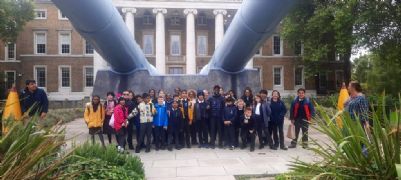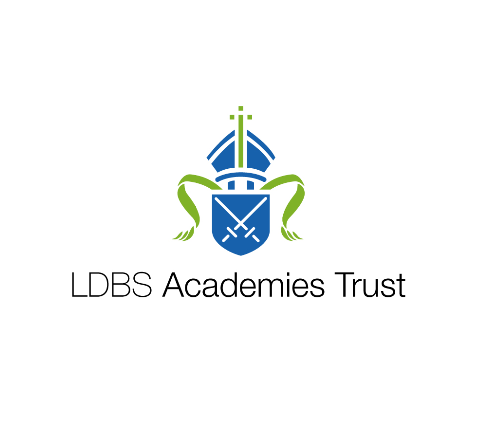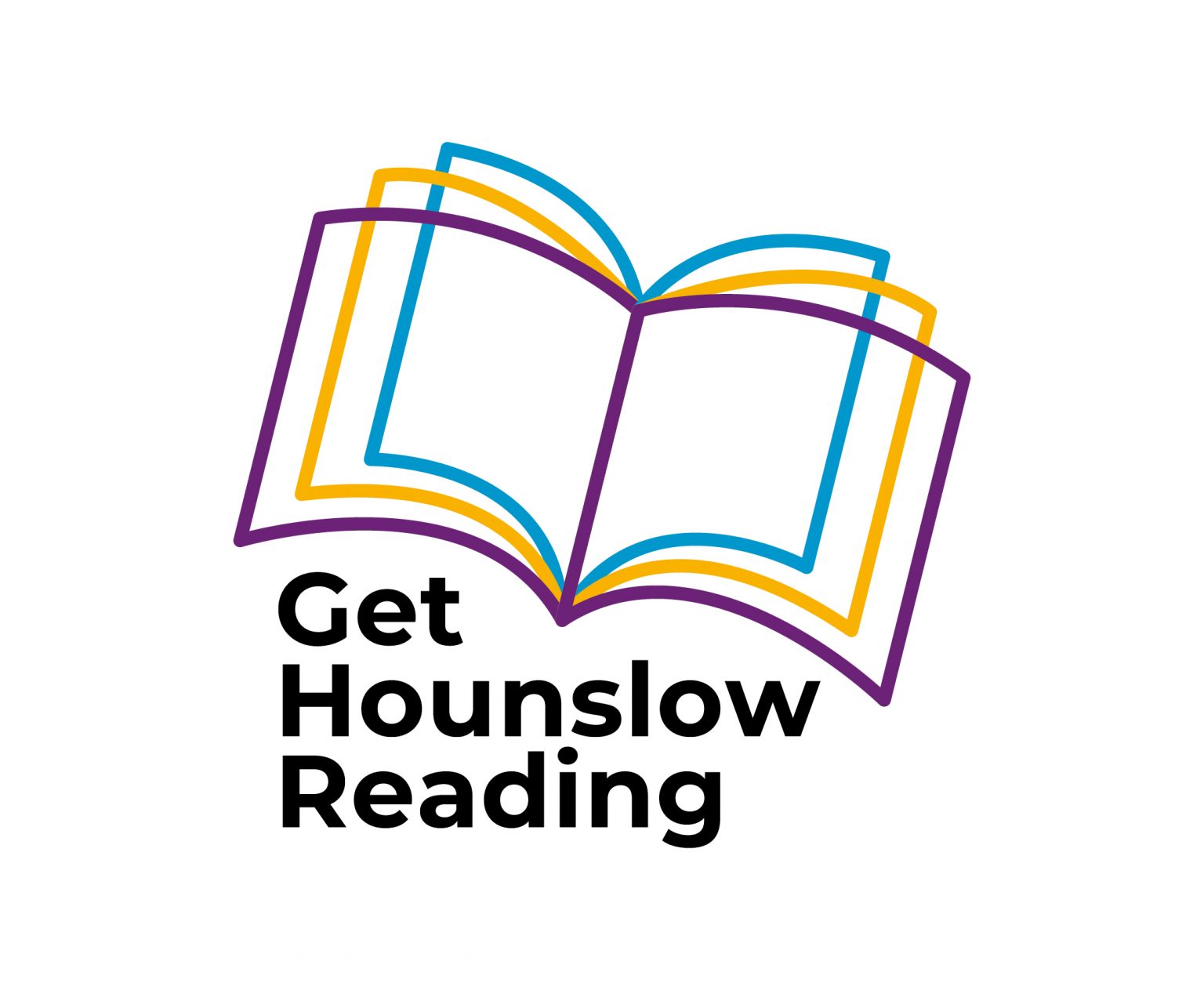History
Curriculum Intent
At St Richard's, we want to inspire pupils’ curiosity about the past and give them an understanding of how relevant history is to their lives in a global world. Pupils will gain a secure chronological knowledge of local, British and world history. We want them to be able to ask questions about the past, to experience and interact with objects and locations of historical significance, evaluating sources and forming their own understanding of the story of history.
Curriculum Implementation
Early Years Foundation Stage
In the EYFS, storytelling and sequencing activities begin to build pupils’ understanding of chronolgy and pupils are encouraged to ask and answer questions about the world around them. Children talk about past and present events in their own lives and in the lives of family members. This lays a secure foundation for the development of historical concepts in later key stages.
Key Stage 1
At KS1, pupils study the more recent past, looking at the themes of Toys and Transport and how they have changed over time. Significant people, events and places from the more distant past are also studied, including the Great Fire of London, Florence Nightingale, Mary Seacole, British Queens and Victorian schooling. Pupils start to ask and answer questions about the past by looking at written sources, pictures and objects and explore similarities and differences between the present and the past.
Key Stage 2
At KS2, pupils begin a chronological study of history, which sweeps them through thousands of years of history. From Prehistoric Britain, through the Egyptians, Romans, Greeks, Vikings and the Mayan Civilisation, pupils are taken on a journey of historical enquiry and investigation, ending in Year 5 with a study of the Tudors. In Year 6, pupils sharpen their chronological knowledge and historical skills of enquiry and interpretation by studying more recent historical events. Pupils focus on local history through studying Hanworth during the Second World War, and consider the significance of the arrival of the Empire Windrush as a turning point in British history.
 Our teaching of history is enriched with visits to places of historical significance, both locally and further afield, including visits to the local war memorial, the British Museum, the Imperial War Museum, Windsor Castle and Hampton Court Palace. Opportunities such as the Viking, Stone Age and Toys from the Past workshops allow pupils to interact with artefacts and experience history first hand. Special history days in school, such as Greek Day and Egyptian day, are hugely popular and foster curiosity and a love of history.
Our teaching of history is enriched with visits to places of historical significance, both locally and further afield, including visits to the local war memorial, the British Museum, the Imperial War Museum, Windsor Castle and Hampton Court Palace. Opportunities such as the Viking, Stone Age and Toys from the Past workshops allow pupils to interact with artefacts and experience history first hand. Special history days in school, such as Greek Day and Egyptian day, are hugely popular and foster curiosity and a love of history.
Progression in History
[History Curriculum Overview]
Throughout each History unit, children are taught specific disciplinary skills to learn how historians construct knowledge about the past.
Early Years Foundation Stage
Chronological Understanding
KEY SKILLS: Using terminology, ordering and sequencing
- Use simple words to talk about the passing of time
- Talk about past and present events in their lives and in the lives of family members
- Begin to organise events using basic chronology; recognising that things happened before they were born.
Historical Knowledge
KEY SKILLS: Identifying, describing, explaining, making links and comparisons
- Recognise and describe special times or events for family and friends
- Comment on images of familiar situations in the past
- Listen to and recall simple historical stories
- Compare and contrast characters from those stories
Interpretations of History
KEY SKILLS: Identifying, interpreting and explaining events
- Identify and talk about simple similarities and differences
Historical Enquiry
KEY SKILLS: Enquiry and using sources
- Know that information can be retrieved from books and computers
Organisation & Communication
KEY SKILLS: Using terminology, selecting, organising, communicating, deploying
- Use simple terms to talk about the passing of time
- Connect and compare situations and characters to develop own ideas and talk about them
Year 1
Chronological Understanding
KEY SKILLS: Using terminology, ordering and sequencing
- Use terms concerned with the passing of time
- Recognise the difference between past and present in their own life and the lives of others
- Sequence events or objects in chronological order
Historical Knowledge
KEY SKILLS: Identifying, describing, explaining, making links and comparisons
- Begin to describe similarities and differences between artefacts
- Talk about simple similarities and differences between life at different times
- Know and recount episodes from stories about the past, understanding key events
Interpretations of History
KEY SKILLS: Identifying, interpreting and explaining events
- Begin to identify simple ways in which the past is represented e.g. photos, paintings, artefacts, adults talking
Historical Enquiry
KEY SKILLS: Enquiry and using sources
- Find answers to simple questions about the past from sources of information e.g. artefacts
Organisation & Communication
KEY SKILLS: Using terminology, selecting, organising, communicating, deploying
- Communicate their knowledge through discussion, drawing, drama, making models, writing etc
Year 2
Chronological Understanding
KEY SKILLS: Using terminology, ordering and sequencing
- Sequence photos etc from different periods of their life
- Recognise that their own lives are different from the lives of people in the past
- Sequence artefacts closer together in time
- Place events on a simple timeline
Historical Knowledge
KEY SKILLS: Identifying, describing, explaining, making links and comparisons
- Confidently describe similarities and differences between collections of artefacts
- Show knowledge and understanding of some of the main events and people they have studied
- Begin to recognise why people did things, why events happened and what happened as a result
Interpretations of History
KEY SKILLS: Identifying, interpreting and explaining events
- Identify ways that the past is represented
- Talk about reliability of evidence
- Compare pictures or photographs of people or events in the past
Historical Enquiry
KEY SKILLS: Enquiry and using sources
- Use sources and evidence to ask and answer questions about the past based on simple observations
Organisation & Communication
KEY SKILLS: Using terminology, selecting, organising, communicating, deploying
- Annotate photos
- Use talk, drawing, role play, ICT, labelling, report writing etc to communicate their growing knowledge
Year 3
Chronological Understanding
KEY SKILLS: Using terminology, ordering and sequencing
- Realise the past can be divided into different periods of time
- Recognise some of the similarities and differences between times studied
- Sequence several events or artefacts
- Place the time studied on a timeline
Historical Knowledge
KEY SKILLS: Identifying, describing, explaining, making links and comparisons
- Find out about everyday lives of people in time studied
- Compare with our life today
- Identify reasons for and results of people’s actions
- Understand why people may have wanted to do something
Interpretations of History
KEY SKILLS: Identifying, interpreting and explaining events
- Identify and give reasons for the different ways in which the past is represented
- Distinguish between different sources
- Look at representations of the period e.g. Museum, cartoons etc
Historical Enquiry
KEY SKILLS: Enquiry and using sources
- Use a range of sources to find out about a period
- Ask and answer simple questions
- Select and record information relevant to the study
Organisation & Communication
KEY SKILLS: Using terminology, selecting, organising, communicating, deploying
- Use Historically accurate terms to talk about the passing of time
- Communicate knowledge and understanding in a variety of ways including discussions, pictures, writing, annotations, drama, models
Year 4
Chronological Understanding
KEY SKILLS: Using terminology, ordering and sequencing
- Use dates related to the passing of time
- Understand more complex Historical terms e.g. BC/AD/Century
- Place the time studied on a timeline, compare where it fits in to topics previously studied
Historical Knowledge
KEY SKILLS: Identifying, describing, explaining, making links and comparisons
- Develop a broad understanding of ancient civilisations
- Use evidence to reconstruct life in the time studied
- Identify key features and events of time studied
- Begin to give a few reasons for, and results of, the main events and changes studied
Interpretations of History
KEY SKILLS: Identifying, interpreting and explaining events
- Look at and evaluate the evidence available
- Begin to evaluate the usefulness of different sources
- Use text books and own growing historical knowledge
Historical Enquiry
KEY SKILLS: Enquiry and using sources
- Use evidence to build up a picture of a past event
- Ask and answer a variety of questions
- Choose relevant material to present a picture of one aspect of life in past times
Organisation & Communication
KEY SKILLS: Using terminology, selecting, organising, communicating, deploying
- Use historically accurate terms e.g. BC/AD/Century to talk about the passing of time
- Construct own responses, beginning to select and organise relevant information
- Display findings in a variety of ways
Year 5
Chronological Understanding
KEY SKILLS: Using terminology, ordering and sequencing
- Use relevant terms and period labels
- Make comparisons between different times in the past
- Relate current studies to previous studies
- Place current study on timeline in relation to other studies
- Know and sequence key events of time studied
Historical Knowledge
KEY SKILLS: Identifying, describing, explaining, making links and comparisons
- Study different aspects of the life of different people
- Compare an aspect of life with the same aspect in another period
- Examine causes and results of great events and the impact on people
Interpretations of History
KEY SKILLS: Identifying, interpreting and explaining events
- Offer some reasons for different versions of events
- Compare different accounts of events from different sources – fact or fiction
Historical Enquiry
KEY SKILLS: Enquiry and using sources
- Begin to identify primary and secondary sources
- Answer and devise own historically valid questions
- Use texts and internet for research with increasing confidence
- Select relevant sections of information
Organisation & Communication
KEY SKILLS: Using terminology, selecting, organising, communicating, deploying
- Use appropriate terms matching dates to people and events
- Construct informed responses that involve thoughtful selection and organisation of relevant information
Year 6
Chronological Understanding
KEY SKILLS: Using terminology, ordering and sequencing
- Use relevant dates and terms
- Describe characteristic features of past societies and periods showing factual knowledge and understanding of aspects of the history of Britain and the wider world
- Identify changes within and across different periods
- Sequence previously studied topics on a timeline to gain greater historical perspective
Historical Knowledge
KEY SKILLS: Identifying, describing, explaining, making links and comparisons
- Find out beliefs, behaviour and characteristics of people, recognising that not everyone shares the same views and feelings
- Compare beliefs and behaviour with another time studied
- Know key dates, characters and events of time studied
- Give reasons for, and results of, main events and changes
Interpretations of History
KEY SKILLS: Identifying, interpreting and explaining events
- Link sources and work out how conclusions were arrived at
- Consider ways of checking the accuracy of interpretations – fact, fiction, opinion
- Be aware that different evidence will lead to different conclusions
- Use texts and internet for research
Historical Enquiry
KEY SKILLS: Enquiry and using sources
- Recognise primary and secondary sources
- Suggest omissions and the means of finding out
- Bring knowledge gathered from several sources together in a fluent account
Organisation & Communication
KEY SKILLS: Using terminology, selecting, organising, communicating, deploying
- Construct structured work, selecting and organising information and making appropriate use of dates and terms






Social Media